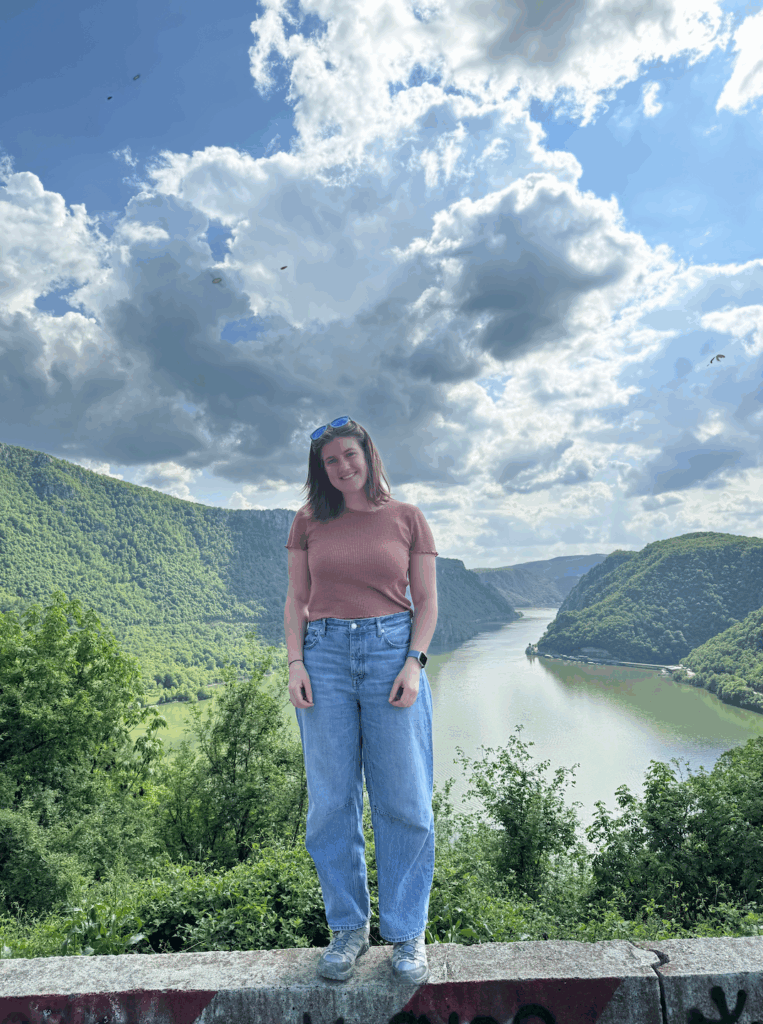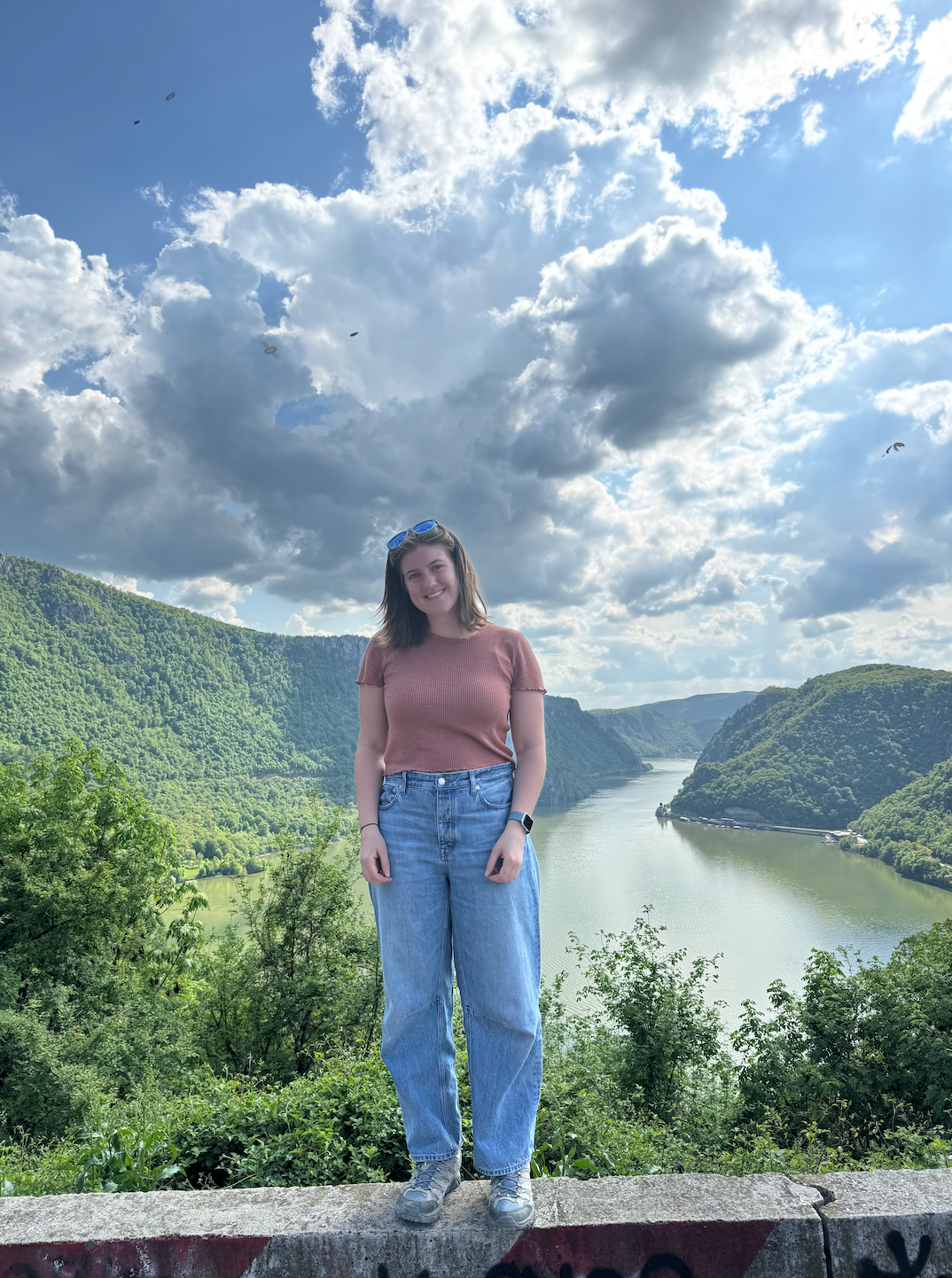Alex Goodale: Reflections from the Field

Alex Goodale is pictured standing in front of the Danube River in Đerdap National Park.
Alex Goodale, a JUPS Senior (’26), spent a semester in the Balkans and Central Europe, where she was able to explore some of Europe’s most pressing challenges, like the war in Ukraine, migration and refugee issues, and the rise of far-right nationalism.
Alex’s Reflections
During my time in Serbia, I found myself constantly drawing connections back to the theories and frameworks from my JUPS classes. For example, observing and researching student protests in Belgrade made me reflect on what I had learned in my Nonviolence Theory and Practice class. The ways students mobilized, the strategies they used to gain visibility, and the challenges they faced in sustaining momentum echoed the principles of nonviolent action I had studied. Seeing this play out in a different context helped me understand both the power and the limitations of protest as a tool for social change.
I also thought often about the concept of negative peace, something that first came up in my Intro to JUPS course. Traveling through Serbia and hearing perspectives on Kosovo, I noticed how the absence of open conflict was often mistaken for peace, when in reality underlying tensions, distrust, and unresolved grievances still ran deep. This distinction between negative peace and positive peace gave me a clearer lens to interpret the political and social atmosphere I was encountering. Alongside this, I noticed how grassroots peace education efforts—something I had explored in Conflict Transformation—were shaping dialogue among young people, even if slowly. It reminded me that sustainable peacebuilding often depends on these long-term, relational investments rather than only top-down policies.
Finally, in conducting my own research on migration patterns and trends, I was grateful for the methodological foundation I gained in Research Methods for JUPS. Knowing how to ask good questions, synthesize interviews, and situate individual experiences within broader systemic patterns allowed me to approach the topic with rigor. This experience not only deepened my understanding of migration in the Balkans but also gave me ideas for future research on how young people’s decisions to emigrate intersect with political disillusionment and protest movements. Altogether, being in Serbia made me realize how much my academic training shapes the way I engage with the world—and it inspired me to continue combining theory with lived experience in both my travels and future career.
